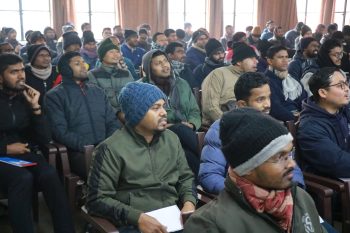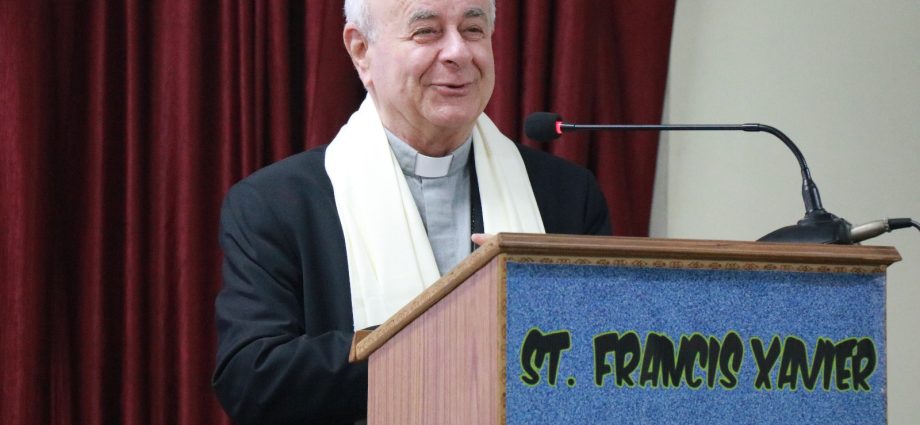By Stanislaus Alla
New Delhi, Jan 31,2024: Archbishop Vincenzo Paglia, president of Pontifical Academy for Life, has emphasized the role of families and communities in providing palliative care.
The 78-year-old Vatican official said this January 30 while addressing the staff and students of Delhi’s Vidyajyoti College of Theology on Ethics about the End-of-life issues
Archbishop Paglia, who is currently visiting India, is scheduled to meet the laity, seminarians, clergy, religious, and bishops. While the major focus of his talks is Artificial Intelligence (AI) and the way the Indian Catholic Church has to prepare itself to wrestle with its benefits and threats, the archbishop will also discuss issues such as Family, Technology etc., during this visit.
Father Andrea Ciucci, the coordinating secretary of Pontifical Academy for Life, is accompanying the archbishop in his India visit.
Archbishop Paglia also spoke to the laity of the Delhi Archdiocese on the importance of AI and how to appreciate the blessings it brings into people’s lives and how to know when and where to draw the line, thereby avoiding the harm it can do to people, to communities, institutions and structures.
Exploring the end-of-life issues at the meeting at Vidyajyoti and referring to the fact that several millions are in need of palliative care in India today, the Italian archbishop lauded the Church’s personnel and institutions who are involved in caring for the needy through this unique ministry.
Making a distinction between usefulness and value, he reminded the gathering that humans have irreplaceable value, derived from being made in the image and likeness of God, rather than whether one is useful or not. The elderly, the sick, the abandoned, the terminally ill, are in need of attention and accompaniment, Paglia noted.

While the states and legislators usually make arguments based on popular views such as ‘right to die’ or ‘die with dignity,’ the Catholic Church always insisted on the giftedness of life, and explicitly and unequivocally states that as we let God bring us into the world, equally, we let God take us back to new life -as per God’s plans and not as per one’s wishes.
Like a virus, individualism is spreading very quickly, the archbishop reminded, but since we are made for families and communities, our lives find meaning and fulfilment only in such cultural contexts. Institutions do play a vital role in providing palliative care but families and communities are indispensable in caring for the abandoned, it was remarked.
Employing the fraternity-paradigm, exhorted by Pope Francis, Archbishop Paglio urges all to move away from a culture of isolation and promote a culture of fraternity, assuring that the palliative care is received best in such a caring and fraternal atmosphere.

